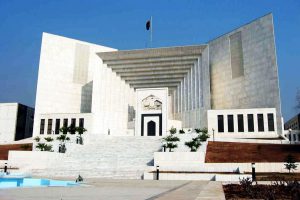Pakistan Supreme Court: While dismissing the present petition seeking the leave to appeal against the decision of Lahore High Court which confirmed the conviction and death sentence awarded to the petitioner’s husband by the Additional Sessions Judge, Burewala; the three-Judge Bench of A.Z. Jamali, C.J., A.H. Muslim and Ijaz Ul Ahsan, JJ., held that schizophrenia is not a permanent mental disorder, and that it is more of a mental imbalance whose increase or decrease depends upon an individual’s level of stress.
The Court further held that schizophrenia does not fall under the definition of “mental disorder” as defined in the Mental Health Ordinance, 2001. The Court also referred to the two judgments of the Supreme Court of India, namely, Ram Narain Gupta v. Rameshwari Gupta, (1988) 4 SCC 247 where the Supreme Court of India had held that merely branding a person as schizophrenic will not be sufficient under the requirements of Section 13 (1)(iii) of the Hindu Marriage Act, 1955; for the purposes of the section “‘schizophrenia’ is what schizophrenia does”; and Amrit Bhushan Gupta v. Union of India, (1977) 1 SCC 180 wherein the Supreme Court of India thwarted the attempts of the convict to wrest himself free from the clutches of law by taking the plea of lunacy.
As per the facts of the present case, the petitioner’s husband Imdad Ali was awarded death penalty by the trial court which was subsequently upheld by the Lahore HC and the Supreme Court. The Mercy Petition of Imdad Ali was also refused by the President of Pakistan, as a consequence of which a Black Warrant was issued against him. The counsel for the petitioner argued that Imdad suffers from paranoid schizophrenia, therefore in consonance with the Prison Rules, 1978 before the execution of the black warrant he should get a treatment so that he can make his will. The Additional Advocate General, Punjab, vehemently refuted the rival contention.
Perusing the contentions and the facts, the Court deemed it fit to ascertain the meaning of “schizophrenia”. Referring to New Webster’s Dictionary, Wharton’s Law Lexicon and Oxford Advanced Learner’s Dictionary, the Court observed that schizophrenia has been defined as “psychotic disorder”, “a mental illness in which a person is unable to distinguish between the real and unreal”. Referring to the abovementioned case laws, the Court observed that Imdad’s plea of mental illness was discarded by all the Courts; the medical reports reveal Imdad to be a psychiatric patient. The Bench further observed that in the present matter all the relevant facts have been considered by the appropriate authorities and the Mercy Petition having been rejected by the President, there remains nothing for the Court to grant the petitioners leave to appeal. Finally the Court opined that the “rules related to mental sickness, are not subjugative to delay the execution of death sentence awarded to the convict”. [Safia Bano v. Home Department, Government of Punjab; 2016 SCC OnLine Pak SC 37; decided on 27.09.2016]

